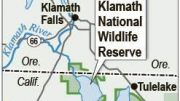DANVERS — It was hailed as one of the largest anti-trust, class-action settlements ever — nearly $2 billion to be paid to investors by some of the country’s major banks for allegedly fixing the financial markets.
And right there near of the top of the list of victims of the alleged fraud was the Essex Regional Retirement System, the Danvers-based organization that manages $370 million in pension money for more than 5,500 public employees and retirees on the North Shore.
The system’s board of directors had voted to join the lawsuit in 2013, convinced by lawyers that the banks’ illegal scheme could have cost the retirement system money when it invested $13.8 million in credit default swaps starting in 2008.
So when the massive settlement was announced in October 2015, Essex Regional figured to be in for a pretty big payday. According to the attorney for the lead plaintiffs in the case, more than 1,000 plaintiffs received more than $1 million each as part of the settlement, and a few got more than $100 million each.
Any hope of a similar payout for Essex Regional was squelched on Jan. 5, when the settlement check finally arrived — for $624.54.
The paltry sum is even worse when you consider that the retirement system, according to Executive Director Charles Kostro, spent about $10,000 on staff time and documents for the case.
The good news is that Essex Regional did not have to pay any lawyers’ fees. Those came out of the settlement — a total of $254 million.
The fact that the retirement system gained nothing from such a large settlement, while the lawyers and other plaintiffs reaped millions, raises questions about why the organization’s board of directors decided to take part in the first place.
“If we were faced with the same thing again, I think we’d be a little more suspect,” Essex Regional Board Chairman Joseph Maney said.
An ‘obligation’ to pursue
Essex Regional became involved in the case at the urging of the New York-based law firm Labaton Sucharow. Labaton Sucharow represents clients in securities litigation, which involves suing companies or banks for alleged fraud on behalf of institutional investors.
The same firm had represented Essex Regional in two previous securities fraud cases. In one case, Essex Regional got $255.38 out of a $2.3 million settlement. The other case was dismissed by the court.
In this particular case, the lawyers claimed that some of the country’s largest banks — including Bank of America, Goldman Sachs, JP Morgan and Morgan Stanley — conspired to rig the market for credit default swaps so they could make “tremendous profits at the expense of U.S. investors,” according to a court complaint.
Those investors included hedge funds, insurance companies, university endowments, and pension funds. Lawyers filed a class-action suit in U.S. District Court in New York with 12 entities listed as “class plaintiffs” — including the Essex Regional Retirement System, which the court complaint said was a “significant participant” in the credit default swap market.
A credit default swap is a complicated financial agreement in which the seller will compensate the buyer in the event of a loan default. The court case claimed that the banks held secret meetings to prevent competition and transparency in the credit default swap market in an effort to cheat investors out of billions of dollars between 2008 and 2013.
Essex Regional was eligible to join the lawsuit because it had invested $13.8 million in credit default swaps during that time period. In July 2013, Labaton Sucharow attorney Eric Belfi wrote a letter to Kostro urging Essex Regional to join the suit.
“Total damages will not be known until discovery of the defendants is complete,” Belfi wrote. “However, Essex did have $13.8 million in (credit default swap) investments during the time in question.”
Kostro said the board had an “obligation” to pursue the lawsuit in an effort to recover whatever losses it had sustained. He said lawyers did not give the board any indication as to how large Essex Regional’s share of a settlement might be.
“You have to make a decision based on what you know at the time and what’s in the best interests of the system,” Kostro said.
‘Big boys’ got the most
The banks eventually agreed to settle the case for more than $1.8 billion while admitting no wrongdoing. Daniel Brockett, the lawyer who represented the lead plaintiffs, said the exact payouts for each plaintiff are not public information.
But he said some major hedge funds, which had billions of dollars in credit default swaps, received more than $100 million each, while more than 1,000 other claimants got more than $1 million each.
When asked why Essex Regional, one of the original class plaintiffs, got such a small payout, Brockett said it was based strictly on their credit default swap transactions during the affected period.
“If they didn’t trade a lot of credit default swaps, then their return wouldn’t have been very much,” he said. “Those who got the most were the big boys who were trading trillions of dollars of these instruments, so that’s only fair.”
Brockett also defended the $254 million in attorneys’ fees, saying it was only 12 percent of the settlement, less than the 30 percent that lawyers sometimes receive in such cases. He said the law firms spent $50 million to $60 million on the case without knowing if they would be paid.
“We returned almost $1.9 billion to investors and we took 12 percent,” he said. “We were on the very low side.”
Brockett said Essex Regional might not have made a lot of money. But he said the agency’s involvement helped expose fraudulent activity on the part of the country’s major banks and has led to reforms to prevent it from happening again.
“They did important social duty by doing this,” he said.
Thanks for participating
If Essex Regional simply got $624.54 for its participation, it could have written off its participation as no harm, no foul. But despite the nearly $2 billion in settlement money going to various plaintiffs and law firms, Essex Regional could not even recoup its $10,000 in expenses.
In the letter to Kostro that accompanied the $624.54 check, Labaton Sucharow attorney Gregory Asciolla said the law firm asked the court for additional money for class representatives like Essex Regional that took part in the suit, but the request was denied.
Asciolla acknowledged that Essex Regional’s distribution was “more modest” than the payouts received by others in the case. But he said the system’s participation was “greatly appreciated and contributed to the excellent results achieved in the case.”
University of Michigan law professor Adam Pritchard, who teaches securities law, said it is not unusual for lawyers to make out much better than their clients in these types of anti-trust lawsuits.
Pritchard said Essex Regional, as a relatively small pension fund, should probably not have been investing in the volatile credit default swap market in the first place.
“Are lawyers going to do better if they have a client who doesn’t really understand what’s going on and doesn’t really have a big share of any potential settlement? Yes,” Pritchard said.
“That’s unfortunate, but it would not distinguish your local pension fund from many other lead plaintiffs. This is lawyer-driven litigation and the justification for it is sending a deterrent message to wrong-doers. There’s going to be an unseemly side to that, which is lawyers making out like bandits.”
Maney, the Essex Regional board chairman, said most of the system’s money is now invested with the state pension fund, so it is unlikely to get involved again with credit default swaps. If the chance to join an anti-trust lawsuit comes up again, Maney said the board will be more circumspect.
“We would want to know, why is it in our best interests to do something like this?,” he said. “And if we didn’t get a good answer, we’d probably back out.”
Staff writer Paul Leighton can be reached at 978-338-2675 or [email protected].
Source: www.gloucestertimes.com




